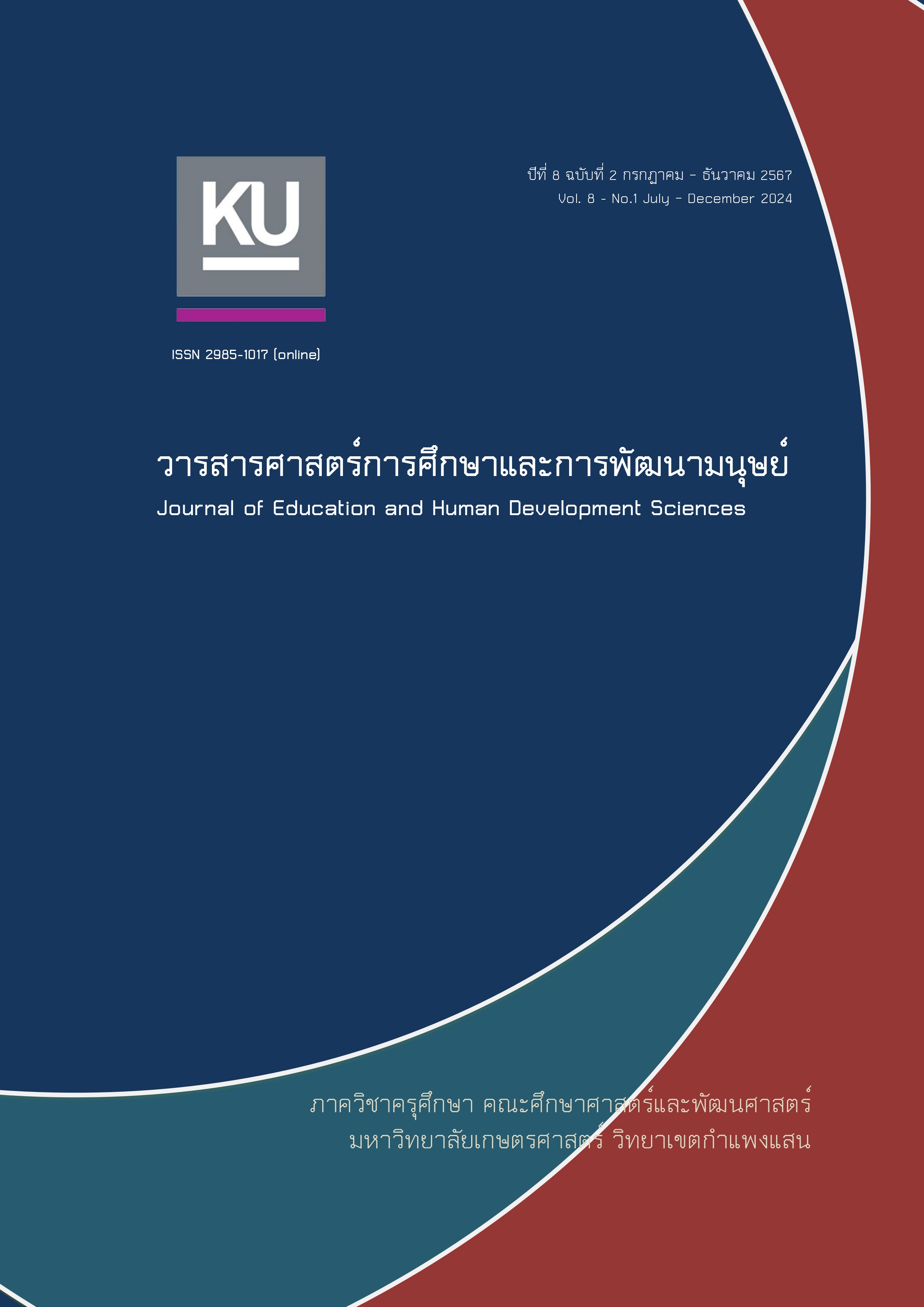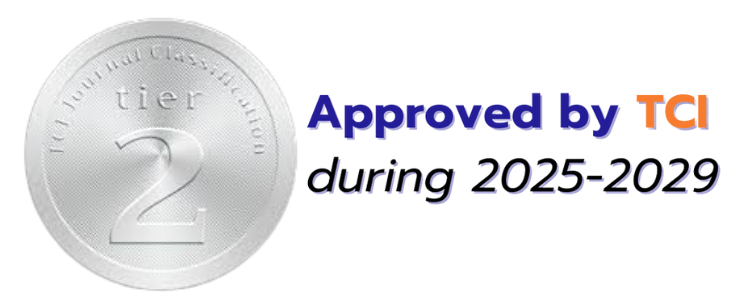Factor Analysis of Leadership Components of School Administrators in the Next Normal Era
Keywords:
leadership, school administrator, next normal eraAbstract
The purpose of this research was to study the factor analysis of school administrators’ leadership in the next normal era. This research was mixed methods approach for qualitative data collection, the key informants were 6 school administrators, teachers, academic and supervisors. The research instruments were an in-depth interview form and a factor confirmation form. The data was analyzed by analytic induction and content analysis. For the quantitative data collection, the sample was 28 schools under the secondary education service area office Nakhon Pathom. The informants were 517 school administrators and teachers derived by proportional stratified random sampling as distributed by district. The instrument was a questionnaire. The statistic used was exploratory factor analysis using principal components analysis and orthogonal rotation by varimax.
The research results indicated that there were 5 factors of school administrators’ leadership in the next normal era. They consisted of 1) Components of personality leadership, 2) Components of academic leadership, 3) Digital Leadership Components, 4) Components of leadership in thinking and decision making, and 5) Social Leadership Components. The standardized factor loading was between 0.607-0.912 with a statistical significance level of .05. All factors could explain the factor of school administrators’ leadership in the next normal age at the percentage of 71.169, which were appropriate, accurate, feasible, and useful for determining factors of school administrators’ leadership in the next normal era.
Downloads
References
Benjawong, N. & Nanthamatwangnara, N. (2022). Educational institution administrators in the
COVID-19 era. Ratchaphak Journal Ratchapark Institute, 16(47), 5-11. [tranlated]
Chaisue, C. & Bunloi, W. & Nilkot, R. (2023). Desired characteristics of school administrators in the
Next Normal era affectig the effectiveness of educational institutions Under the Rayong
Primary Educational Service Area Office, Area 1. Mahachula Nakhon tas Journal, Faculty of
Education, Rambhai Barni Rajabhat University, 10(6), 175. [tranlated]
Chusonsai, N. (2022). Creative leadership in the new normal life of school administrators under the
Office of Bangkok Secondary Education Service Area 1 [Master of Education Thesis Field of Study, Educational Management College of Education Dhurakij Pundit University].
Kangwanphanit, A. & Ngamkanok, S. (2023). (Leadership in Next Normal: Innovation and Future
Technology of Education. Journal of the Educational Administration Professional Development
Association of Thailand, 5(2), 37-43. [tranlated]
Khenaphum, S. & Phromkaeo, W. (2024). Components of intelligent leadership education. Surindra
Rajabhat Academic Journal, 2(2), 59-60. [tranlated]
Ministry of Education. (2020). Announcement of the Ministry of Education regarding educational institutions under and under the supervision of the Ministry of Education being closed for special reasons. https://www.moe.go.th/category/announce/?_sf_s=. [tranlated]
Ministry of Education. (2022). Ministry of Education announcement Policy matters and focus areas of
the Ministry of Education Fiscal year 2024. https://moe360.blog/2023/01/04/policy-and-focus-moe-fiscal-year-2024/. [tranlated]
Ministry of Public Health. (2022). Announcement of the Ministry of Public Health on names and
important symptoms of dangerous infectious diseases (No. 3) B.E. 2020. https://ddc.moph.go.th/law.php?law=1. [tranlated]
Phaichayonwichit, T. & Thitisawan, S. (2022). Impact of the COVID-19 outbreak on education.
http://www.eco.ru.ac.th/images/ document/article/TreeNut/publish02-02.pdf. [tranlated]
Phanbunmi, S. (2021). Digital Transformation from New Normal to Next Normal.
https://www.depa.or.th/th/article-view/digital-transformation-new-normal-next-normal. [tranlated]
Phayomyaem, C. (2021). Thai education in the next normal era. https://il.mahidol.ac.th/th/newsletter64-page9/. [tranlated]
Sukasi, C. Keeratimongkolchai, P. & Worabamrungkul, T. & Nilkot, R. & Bunloi, W. & Chansongsaeng,
A. (2022). Professional executives in the next era of life. Journal of Quality of Life and
Law, 18(2), 74. [tranlated]
Yuenyaw, P. & Thadatantichok, T. (2018). Factor analysis of behavior of professional teacher in 21st
Century [Lecturer in Educational Administration, Faculty of Education, Nakhon Pathom Rajabhat University].
Downloads
Published
Issue
Section
License
Copyright (c) 2024 Journal of Education and Human Development Sciences

This work is licensed under a Creative Commons Attribution-NonCommercial-NoDerivatives 4.0 International License.







